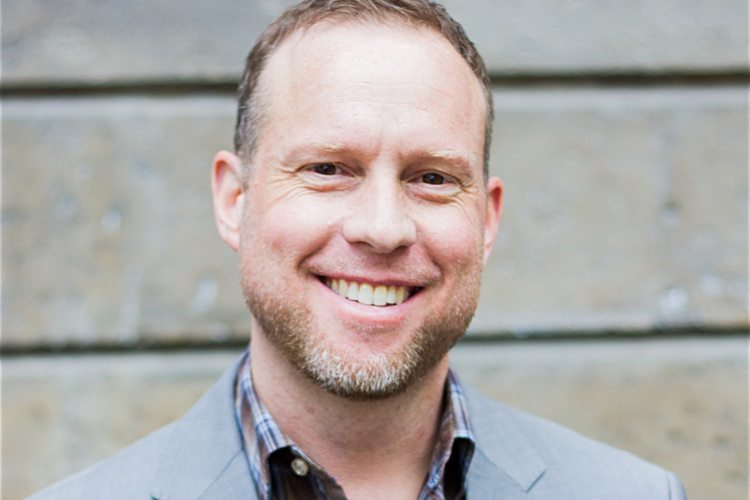by Paul Resnikoff

The following is an interview with ONErpm founder and CEO Emmanuel Zunz, one of the most bullish executives on streaming music’s growth potential. Zunz is all blue sky, though he’s also backing his enthusiasm with free streaming distribution for all artists, a huge move that’s part of a broader, walk-the-walk approach to digital music distribution. We’ve just brought on ONErpm as a sponsoring partner, and think you’re going to hear a lot more noise from these guys in the coming months and years.
Digital Music News: Add up all the on-demand streaming music platforms, and you have roughly 50 million paying subscribers at the midpoint of 2016. What’s the tipping point that sends this to… [gasp] 500 million?
Emmanuel Zunz: I can’t guarantee that this will happen, but I’ll certainly project it. And the reason is that new business models take time initially to ramp up. Usually what you then see is an inflection point, following by a new surge in all-of-a-sudden growth. That inflection point is that watershed moment, it’s the same thing.
DMN: Isn’t growth in premium streaming music pretty high right now? Spotify is surging past 30 million paying subscribers; Apple is taking on a million paying subscribers a month and recently crossed the 15 million mark.
Zunz: Currently, the growth curve for streaming is high among consumers, but in terms of payments and revenue, the growth rates are still pretty flat. But at some point, when people start getting really comfortable with streaming, behaviors will begin to change. That’s your watershed moment, one that will probably occur in about two years. We’ll start experiencing exponential growth.
DMN: Just two years?
Zunz: I think we’re getting closer all the time. When we get there, it’s hard to say exactly. You’ve just got to continue fighting the good fight. But this won’t happen if the industry doesn’t get behind streaming. We — all of us — have to play an active role to drive consumers towards streaming platforms.
DMN: Doesn’t sound like what’s happening at the moment.
Zunz: The impression I have now is that many are deciding that it’s Spotify or Apple that are responsible for figuring it all out. It’s ‘These are my rights, I need to be paid for my rights, this is my catalog and it’s up to you guys to figure out how to make a business out of it.’ And I don’t think that’s a productive attitude, I think we all need to be thought partners on how to make streaming successful.
“A lot of the artists I know are making a lot more money on streaming than they are from downloads.  That’s already happening, and it’s very normal these days.â€
DMN: But aren’t there serious concerns regarding royalty rates?
Zunz: It’s not that we don’t need to have a productive discussion on rates, or change the laws on how income on streaming music should be distributed. We’re dealing with old copyright laws, and I think those are healthy discussions, we need to keep in mind that without streaming, then we’re really screwed. So we have to play an active role in making this successful, and we can do that by having artists using their influence on their fans, and having them drive traffic using specific campaigns. As opposed to keeping streaming companies hostage and always trying to extract better rates. I understand we want to hold streaming services responsible, but we also need to help them get customers, and that’s by being a marketing or promotional partner with them.
DMN: So at 500 million paying subscribers, is that the point that artists start to experience a decent royalty rate?
Zunz: Frankly, I don’t know what a ‘decent royalty rate’ means. Is it the percentage that isn’t decent, or is it gross numbers that aren’t acceptable? A lot of the artists I know are making a lot more money on streaming than they are from downloads. The money they make per-download is clearly a lot higher than what they’re making per stream, but they’re still making more overall on streaming. That’s already happening, and it’s very normal these days.
So what I’m seeing right now is that we’re light years ahead of where we were two years ago, in terms of streaming monetization. And in two years, we’ll be even more light years ahead. So if the money is already not so bad right now, it’s going to be really good tomorrow.
And if you look at it, the payments are decent right now, there are just issues of who’s getting paid. If it’s the label, it’s what’s getting passed to the artist. But streaming is a very important source of revenue for a music company today, and it should be an important source of income to the artist. But it’s often down to how much a label is paying the artist.
So, I really don’t really understand or agree with the premise of the question.
DMN: Why shouldn’t an artist wait until the big subscriber numbers arrive? Why put up with bad royalties today?
Zunz: We really need to work together to build an industry. And no, artists shouldn’t wait until the big numbers arrive, I really don’t think we’re talking about bad numbers today, but we need to work together to change consumption habits. They need to show their fans the value of listening on streaming. And in order to change consumption habits from users, you need to have your content on the platform, and show the user the value of subscribing.
So it’s absolutely imperative that artists don’t wait, they have to be participants. We all have the responsibility and the power to transform the industry into what we want it to be. We should never sit out and wait. And it’s only through working internally that we can actually make change, it’s only through participating that we can make change, we have to make it happen, and by all of us taking a part is how we’re going to get to 500 million subscribers.
DMN: What happens to free streaming in all of this, either on YouTube or the on-demand audio side? Sony Entertainment executive Michael Lynton recently mentioned that free access may eventually be terminated, as soon as paid volumes reach critical mass.
Zunz: It’s not free, it’s ad-supported. And YouTube and on-demand services are very different in terms of how they treat ads. I don’t know if you’re going to get rid of ad-supported entirely, though I do feel strongly that having users sign up for ad-supported streaming is an essential part of the development of this industry. Will it go away? It might. But it would only go away if we have a good amount of paying subscribers.
DMN: How many is a ‘good amount’?
Zunz: If we have 100 million or 200 million paying subscribers, then you can probably afford to move away from ad-supported. At a certain point you can afford to shut it off, you can afford to say, ‘okay, no more free streaming’. There’s a point, where is that point exactly? If you reach that inflection point, maybe it’s 200 million, then things start to move exponentially towards 500 million. At a certain point, you have enough people paying $10-a-month (or $5-a-month depending on the country), and then maybe you really don’t need free anymore. You may not need ad-supported streaming, because you have a big enough business through paid streaming and enough word-of-mouth that it grows organically.
Really, it’s an economic question, not a philosophical question. It’s a pragmatic economic issue, you simply don’t need to offer free after a certain point, and maybe that’s between 100 and 200 million subscribers.
DMN: Your company, ONErpm, is now offering gratis streaming distribution alongside broader artist and label services. Obviously this is fueled by your bullishness around streaming, but can you explain more on how that helped you shape your model and pricing towards artists?
Zunz: First, we want to be in the business of helping artists, on both the distribution and marketing side. We don’t want to be known as a fee-for-service company. So we did a pilot half a year ago, with distribution to three or four services offered for free to our DIY customers. That’s a component of our business, though the bulk of our business is focused on label services and marketing.
During the experiment, we noticed that most artists chose those three or four services, and we started experiencing a lot more volume and significant revenue growth on the services that we made free. At the same time, we saw exponential growth on streaming services overall, so we decided to just open up our entire platform to get similar results.
So if we weren’t making any money on those free services, it wouldn’t make any sense for us. But we’ve experienced growth in both the number of artists and streaming revenues, so why create additional barriers for artists to get their music out through sales?
So one question has been how can we promote the growth of streaming, and one part we can play is by reducing the barriers to distributing your music to streaming platforms.
DMN: You’re making a percentage off of streaming and sales?
Zunz: Yes, streaming and sales.
DMN: So this is simple math, you’re just making more off the backend off the frontend?
Zunz: Yeah! It’s obvious, it’s good business.
DMN: So in this streaming hyper-growth, what happens to downloads in all of this? The format is already declining more than 20 percent year-over-year, and probably more. Once things hit 100 million, 200 million subscribers in two years, what’s left for downloads?
Zunz: Yeah, I don’t think there’s a whole lot left for downloads. I’ll still download a track every once in a while, but there’s really no need for it. The experience you get from these streaming services, in terms of how you consume your music, whether you’re listening to it on the go, backing up your tracks to listen to them in car, listening to your Sonos system at home, or whatever you want to do, the experience is really, really good. I basically get the equivalent of a download every time I do a backup of my playlist on Spotify or Deezer.
DMN: Both?
Zunz: I like Deezer, I like all the services. I personally pay for Google Play, Pandora, Deezer, Spotify…
DMN: That’s not your average consumer.
Zunz: Well the reason is that I really enjoy seeing how each of them works, what they’re tweaking, how they’re continuing to make upgrades. It’s amazing to see how much better they’re getting year over year, and how much their services are improving. And so, the experience I’m getting on all of these platforms is much different from the experience I’d get from downloading a track.
So I just don’t see where downloads fit in the medium term. I just don’t see it.
“CDs aren’t going to go away completely, just as vinyl never went away completely. But I think downloads could potentially go away completely.â€
DMN: Older formats are sometimes rapidly replaced.
Zunz: It’s just like CDs, except that CDs aren’t going to go away completely, just as vinyl never went away completely. But I think downloads could potentially go away completely.
DMN: That’s an interesting proposition, I’ve never quite heard that. But it makes sense: downloads have a linear connection to streaming on the digital side, whereas a CD is a physical experience. Perhaps it’s not as directly cannibalized.
Zunz: That’s just my opinion, we’re seeing downloads declining slowly and gradually. I can’t give exact numbers, but we’re not seeing those precipitous, 30 percent drops, though we are seeing some drops. And it really depends on the country; in some countries where the iTunes Store entered late or was non-existent, those countries never had a download culture in the first place. iTunes only opened an office three years ago in about 50 countries, so they didn’t even have iTunes until recently. So in those countries you’re seeing really strong drops.
In countries like the US you still see a strong download culture, but overall it just depends on where you are globally. But globally, the decline is slow and steady. And fortunately for Apple, Apple Music is picking up pretty quickly which is nice. It could be faster, though it’s definitely moving in the right direction.
DMN: Where do playlists land in all of this? That seems to be the latest real estate land grab, and we’ve been contacted by artists who have found themselves on plum playlists and making some money. Then we started to hear a lot of talk about ‘playlist playola’ which refers to paying to gain inclusion on heavily-trafficked lists, and we’ve even heard one major label CEO discuss streaming playlist access as a competitive advantage. Do you see ‘playlist payola’ as becoming a serious threat to smaller artists or mid-stage artists in the future?
Zunz: I think it’s a great question. Are you finding that people are buying playlists, is that what you are finding out?
DMN: We’re getting a lot of information — not 100% — but we’re seeing that a lot of playlists are getting directly purchased or created depending on major label ownership shares. So the idea that a recommended playlist is being created in a vacuum by a curator music geek at Spotify is misguided, instead this process seems highly dictated by who’s paying for it and who has the influence to get onto these playlists. So if it’s not exclusively ‘playlist payola,’ it’s at least a portion of the discussion at this point.
Zunz: I do think it exists; there’s no doubt it exists. And there are a lot of forces at play, some good and some bad, though I think players like Spotify can control it so that it’s not bad for artists. And the credibility of these services hinges on their ability to break these artists. So if they only end up promoting established acts and aren’t a source of discovery, then they fail.
And sure, you can pay a company to promote songs and get them played on playlists, UMG even bought a company here in Nashville that does that. But I’m not really too concerned about this, because these services will simply lose the support of indie artists if they’re not breaking independent acts and they don’t give them the attention they need. So they really need to strike the right balance between promoting bigger artists (because that makes money), while helping the smaller artists succeed. And if they screw that up, then they’re going to screw up the business. So I think they’re smart enough not to screw it up completely. I think they’ll screw it up a little bit, but not completely.
DMN: Thanks very much for sharing your philosophies with DMN.
Zunz: Thank you.



















